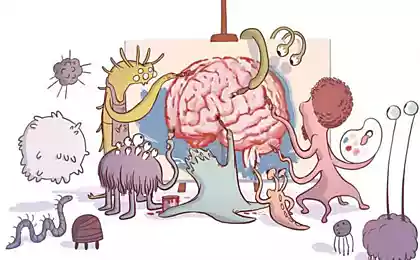480
The mood affects the quality of the work
In studies of Dutch scientists was attended by 130 students who are studying business. They had to solve a number of problems: creative nature (to describe different ways of using the glass of water) and analytical (solving puzzles). Half the group was in a good mood, and the second is not.

As a result, subjects in a good mood creativity increased by 10%, while the analytical fell. Conversely, volunteers with poor mood analytical skills increased by 25%, and creative decreased.

"Evolution will help to explain the result of the study, as strange as it may sound. Negative emotions, for example sadness, give signal the brain that there is some problem, with the result that the brain is trying to work better. While positive emotions signal the brain that you can relax. This, in turn, helps creativity," — says study author Victoria Visser of Erasmus University in the Netherlands.
Source: /users/559

As a result, subjects in a good mood creativity increased by 10%, while the analytical fell. Conversely, volunteers with poor mood analytical skills increased by 25%, and creative decreased.

"Evolution will help to explain the result of the study, as strange as it may sound. Negative emotions, for example sadness, give signal the brain that there is some problem, with the result that the brain is trying to work better. While positive emotions signal the brain that you can relax. This, in turn, helps creativity," — says study author Victoria Visser of Erasmus University in the Netherlands.
Source: /users/559























